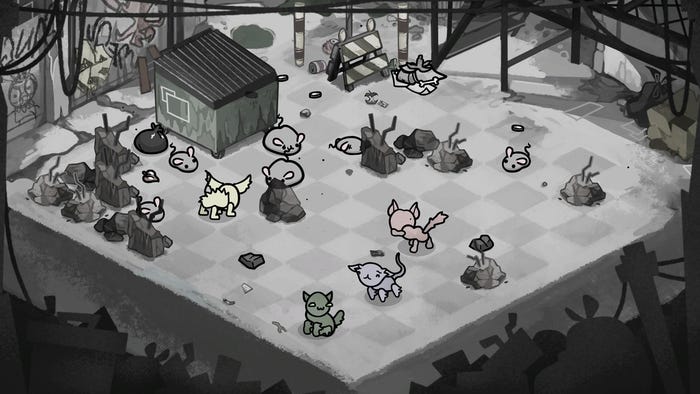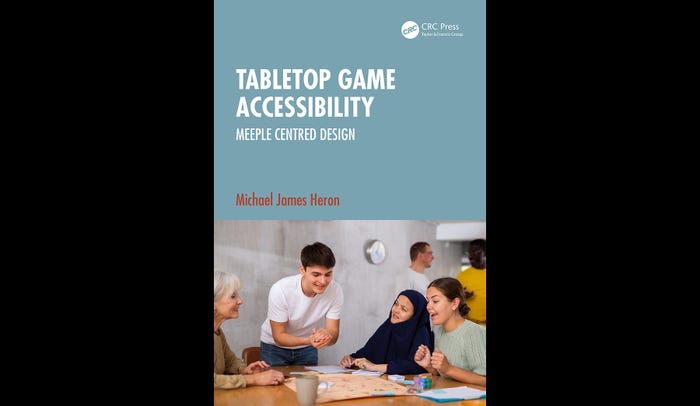GDC 2004 Interview: Daniel James on Puzzle Pirates, Online Community Management, Cutlass Waving
As co-founder of Three Rings, the San Francisco-based company behind the cult Java-based 'massively multiplayer puzzlegame' Yohoho! Puzzle Pirates Daniel James is trying to take a very different path to success in the MMO market after years working on big-budget, eventually shelved MMO adaptions of The Lord Of The Rings. We chatted to him about his road to creating one of the smallest but most intriguing massively multiplayer games around.

| ||
Daniel James |
As co-founder of Three Rings, the San Francisco-based company behind the cult Java-based 'massively multiplayer puzzlegame' Yohoho! Puzzle Pirates (http://www.puzzlepirates.com/about/), Daniel James is trying to take a very different path to success in the MMO market after years working on big-budget, eventually shelved MMO adaptions of The Lord Of The Rings. He switched over to a small team, a 2D game, uniquely different gameplay, and a surfeit of skeletons and buccaneers, and created one of the only MMO games out there with genuine buzz. We chatted to him about his road to creating one of the smallest but most intriguing massively multiplayer games around.
Q: Where did the concept for Yohoho! Puzzle Pirates originate?
A: I wanted to make a pirate game for a long time. I was sick of fantasy roleplaying - I spent six years trying to make Lord Of The Rings Online, and that was a goal, and a worthy, lofty goal, but after that fell through, you don't want to make a generic fantasy game - pointless. I decided I didn't want to hit an orc or goblin or rat over the head ever again. Everyone's always loved pirates since they were a kid, so it seemed like an obvious thing, and the crews and everything else that go with it work really well for an MMP. So I had that, but I didn't have core gameplay.
So I left my girlfriend playing PopTop's game Bejeweled one day with the laptop in bed, and I came back six hours later, and she was still there. Puzzle games are so compelling, but so vapid and empty as an experience. But if you put that into a massively multiplayer game, you solve both problems. The big problem with MMPs is that the actual core mechanic of what you do is not very fun. Everything else around MMPs - the progression, the social grouping, and so on is fun. Puzzle games have a fun core mechanic, but nothing around them, so they feel endless and moribund and pointless. It was blindingly obvious from there on out.
One of the attractions of the concept was that some MMOs need to constantly add new things for people to do, to make up for the fact that the gameplay isn't that interesting. Puzzles take that requirement away somewhat. Puzzle Pirates is a very content light game, which works, but it's too content light in some ways - we could do with more content, and hopefully we'll have the time, money, and resources to add more in the future.
Q: Why did you end up using the Java programming language for Puzzle Pirates, an unconventional move?
A: Lunatic? Madness? Absolutely off their heads, I think now. I kind of thought so at the time. The engineers had a lot of experience with Java, and has a lot of advantages in terms of running the server and having the same language on the client and the server. When we started the project, we very early on had a very robust distributed object system, and it was part of what allowed us to accelerate development and get an MMP done in 2 and a 1/2 years with 6 people. There's been tremendous value there. Also, we develop on Linux, and we're somewhat religious about that. It is very nice to be able to develop [a Java-based game] on Linux and not have to touch Visual C++, and then deploy new versions seamlessly on Linux, Windows and Mac - that's a boon, though obviously we have to test when new versions of Java come out.
Q: How does the relatively modest Puzzle Pirates measure up to the massively-budgeted MMO titles of late?
A: I think one of the big problems with the games industry right now is the perception that more money spent and more content equals more fun. That's just patently not true. If you add more flashy-looking animations, it doesn't make the game more fun. It can enhance the experience, but that's not what the game's about. When we came to Puzzle Pirates, we considered how we could make a game that was fun, and keep focused on that, and not wander off into crazy content development land. Also, we thought how can we can make a game in a fairly short period of time with a fairly small team, partly out of necessity, because we didn't have millions and millions of dollars to do it. But if we'd tried to get a publishing contract, we wouldn't have done it - it just wouldn't have happened. There are great advantages to not having a publisher. Even if they liked the concept, they probably would have done things to us during the process which would have broken it horribly.
Q: Do you think it's necessary for games like yours to partner with bigger sites such as Shockwave to get the word out?
A: In the end, our audience is very broad, and it's hard to reach these people apart from through aggregation sites. Moms who like playing puzzle games - where do they go? We're not going to run ads in Woman's Own for them, we're going to pick them up from places like Shockwave. Certainly that's a large part of the strategy. We're also looking at getting retail distribution, going into Wal-Mart, Target and so on, with a small price point and subscription paid for for a couple of months - we're not interested in making money off the boxes, just attracting new subscribers.
Q: How do you deal with troublemakers in the Puzzle Pirates online community?
A: We have the luxury of a small fan community. I like to think that if you treat people with respect, then they'll behave better, although the rules of the Internet don't always work that way. As we grow, it's harder and harder to maintain a good attitude. All you need is one person with bad attitude, and it becomes very difficult. There are people who I wish would leave the forums - they're not rude, but they're troublesome, and other people react to them, and you get flamewars, and so on. It's very hard to manage. More and more my attitude is that every player is a precious sacred flower, but some of those flowers should get chopped down and dried out. If someone's going to be annoying and a pain, I'd rather they went away.
Q: What do you think of the 'virtual world' MMO games like Second Life or There?
A: These companies are trying to create Neal Stephenson's Street, the ubiquitous virtual world. It's an attractive and elusive concept. These current attempts are not going to succeed - for it to do so, it has to be universally adopted and open-source. Commercial developers won't engage with it until it's ubiquitous, and open-source and not commercially owned. In terms of user-created content, there are a number of roadblocks to getting the critical mass you need for that to be effective. These virtual world companies need a large audience before they have enough creative people, because content creators are in the top one percent of people. But I don't think anyone's going to hang out in a virtual world with no activities. If there isn't anything to talk about, then it's useless. I don't think being able to make wacky game objects is enough for a large audience to talk about.
| ||
Puzzle Pirates |
Q: What's been the biggest challenge, post-launch, regarding Puzzle Pirates?
A: We launched very well, but the big challenge, with a small team, balancing the demands of what the existing player base wants with what new players need. As an example, after we launched, we spent a lot of engineering time on small features and tweaking things for the new user experience, whilst delaying features for our high-end players who'd already been playing the game for 6 months. Now we're going back to the high-level features, but it's basically down to prioritizing demands.
Q: Is there a danger that the games industry in general, and the MMO industry in particular, are stuck with a core, non-expanding market?
A: I think the jury is out. For the hardcore gaming market, that's generally the case. The games business has been monumentally stupid in selling over and over again to the same people. It defies belief, really, because these people are not going to continue playing games forever. A lot of people who are now the core demographics of gamers are not going to have time in 5 years to play games like they are now. If we keep churning out the same games over and over again, and the people who make the games become unfashionable, because we become old - it's just not a sustainable long-term strategy. That said, it's hard to make games that are different.
With MMPs, I think we have been selling to the same audience, and I don't think that's going to work. I think there's been some growth, but of PC game players, a lot of them are subscribed to a MMP at any given point, and a lot of them have multiple accounts. This makes some of the subscription numbers very misleading, because these people have a lot of disposable income. We have people who have two accounts on Puzzle Pirates, and some of them seem to have four accounts on Ultima Online, storing items they've had for years and years. So that's a distortion that may come back to bite us. With respect to Puzzle Pirates, I hope, and the jury isn't in on this, I view our market as the 50 million people who played Bejeweled, and they haven't been sold to on this front yet. It's a new experience for them.
About the Author(s)
You May Also Like











.png?width=300&auto=webp&quality=80&disable=upscale)



